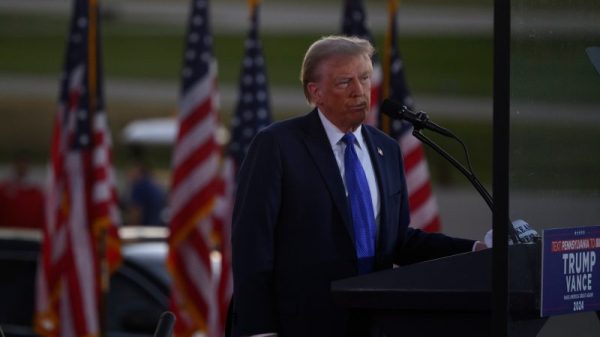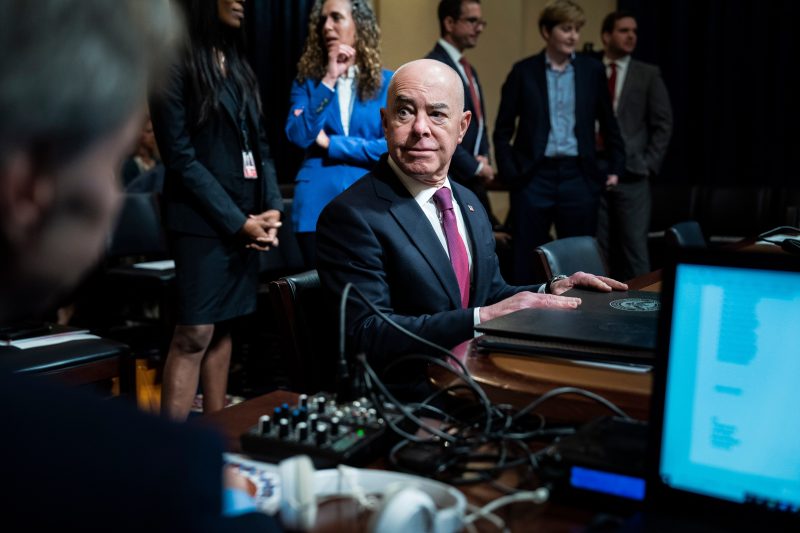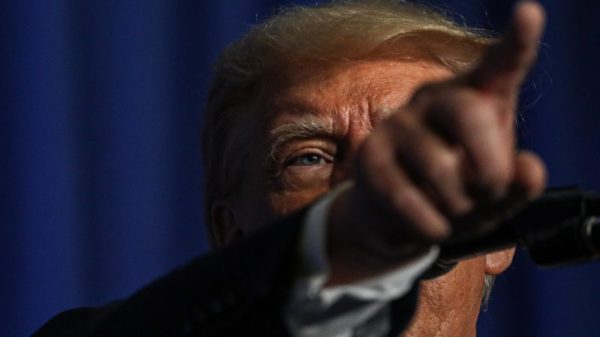The Republican-led House is scheduled to vote Tuesday on whether to impeach Homeland Security Secretary Alejandro Mayorkas over what they say has been a neglect of his duties at the U.S.-Mexico border, in a process Democrats have decried as a sham. If the vote is successful, Mayorkas would be the first Cabinet member impeached by the House in almost 150 years.
Last week, the House Homeland Security Committee advanced two articles of impeachment against Mayorkas, accusing him of “willful and systemic refusal to comply with the law” and breach of the public trust. Democrats repeatedly asserted during the hearing that Republicans have no constitutional basis to impeach Mayorkas, and they said that GOP lawmakers have struggled in two recent hearings to detail clear evidence of high crimes and misdemeanors.
Even if the full House impeaches Mayorkas, he is unlikely to be convicted in a trial in the Democratic-led Senate.
Democrats have criticized the impeachment proceedings as politically motivated, pointing out that Republicans are trying to oust Mayorkas for supposedly neglecting to secure the southern border while at the same time opposing a bipartisan package under negotiation in the Senate that would seek to improve border security.
“Impeaching Secretary Mayorkas would trivialize this solemn constitutional power and invite more partisan abuse of this authority in the future,” the White House said in a statement Monday strongly opposing the anticipated House action. “It would do nothing to solve the challenges we face in securing our Nation’s borders.”
Mayorkas did not appear at the committee hearing last week but vigorously defended his record in a six-page letter to Homeland Security Committee Chairman Mark Green (R-Tenn.) that detailed his lengthy career in public service and disputed the GOP’s accusations that he has avoided their oversight requests.
“We have provided Congress and your Committee hours of testimony, thousands of documents, hundreds of briefings, and much more information that demonstrates quite clearly how we are enforcing the law,” Mayorkas wrote.
His responsiveness to the House’s oversight requests would not waver, however “baseless” the proceedings, he added.
“I assure you that your false accusations do not rattle me and do not divert me from the law enforcement and broader public service to which I remain devoted,” Mayorkas wrote.
House Republicans announced the two articles of impeachment against Mayorkas last month, after swiftly concluding two public impeachment hearings without Mayorkas’s in-person testimony or testimony from any fact witnesses.
In the first article of impeachment, Republicans argue that Mayorkas has failed to enforce U.S. immigration policies at the nation’s border, has disregarded laws passed by Congress and has ignored court orders, allowing for a surge of migration at the southwestern border that has resulted in record highs of illegal crossings in recent months.
The second charge, breach of the public trust, accuses Mayorkas of making false statements and obstructing oversight of the Department of Homeland Security. After little public action in the probe for several months, the Homeland Security Committee’s investigation came to a head this month after Green invited Mayorkas to testify at the committee’s second impeachment hearing.
Mayorkas responded that he had a scheduling conflict and offered to testify on another date, but Green declined the offer and moved forward with the hearing. It was held on a day Mayorkas was preparing to host a delegation of Mexican officials to discuss migration issues at the U.S.-Mexico border. He also was spotted on the other side of the Capitol, negotiating with the Senate on a border security deal.
Shortly thereafter, Green issued a letter outlining 31 requests to the department that he said remained “partially or entirely unsatisfied,” signaling an obstruction charge to come.
Homeland Security officials have noted that Mayorkas has already testified before Congress more than any other Cabinet member — 27 times in 35 months — and that the department has provided 90 witnesses for committee hearings since the start of the Biden administration, along with more than 13,000 pages of documents and data in response to Green’s requests alone.
Green told reporters last week that it did not matter if the Senate ultimately did not convict Mayorkas.
“I’m doing what is, I think, my duty, and votes will be what votes are. I feel pretty good,” Green said. “The same question gets asked. … ‘Are you just doing something that’s going to wind up being fruitless anyway because of the Senate?’ Well, fine, if that’s what they choose to do, but I have a duty to do.”
Mayorkas appeared before the committee in November. But threats to impeach him have loomed since House Republicans assumed the majority, serving as a rallying cry for hard-line lawmakers such as Rep. Marjorie Taylor Greene (R-Ga.), who has made repeated efforts to force an impeachment vote.
Constitutional experts and Democrats have argued that Republicans are abusing a tool adopted by the framers of the Constitution to protect the country from despotic leadership to instead address a policy dispute. Two law professors who testified before the committee last month both stated that they did not see a constitutional basis for impeachment.
“Policy differences are not impeachable,” the committee’s top Democrat, Rep. Bennie G. Thompson (Miss.), said in his opening statement. He repeated the view of a constitutional scholar who testified before the committee and argued that no other branch of government has more power to address the crisis at the border than Congress.
Niha Masih contributed to this report.





























